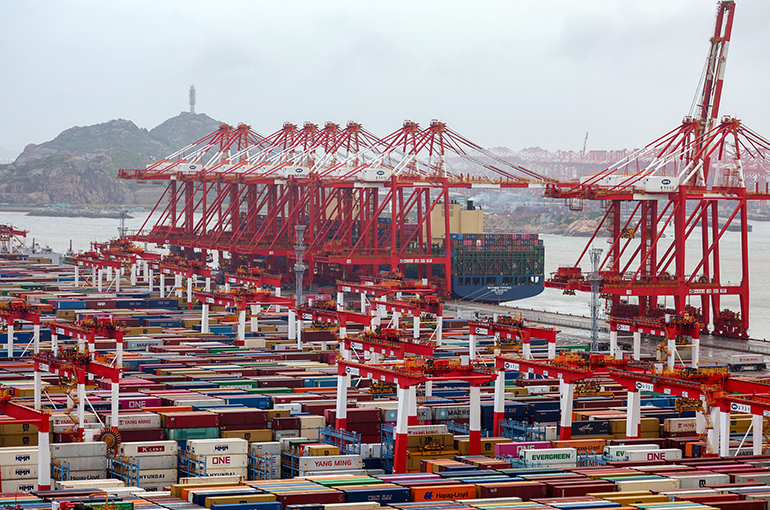 Global Firms Look to China for Supply Chain Restructuring, StanChart Report Says
Global Firms Look to China for Supply Chain Restructuring, StanChart Report Says
(Yicai) Sept. 23 -- China is still a top choice for global businesses seeking to restructure their supply chains and will play an even bigger role in the next three to five years, according to a new report from Standard Chartered Group.
Economic and geopolitical factors have pushed up operating costs for companies, the report said, and more than half of those surveyed plan to restructure their supply chains on a global scale, adjust their treasury management strategies, and accelerate digital transformation.
The report, which the UK-based bank released today, polled 1,200 senior executives in 17 global markets, and found that the Chinese mainland is one of the top markets for global enterprises to carry out their supply chain restructuring.
More than half of the surveyed firms in Africa, particularly those from Kenya and Nigeria, said they plan to expand trade ties with China, and about half of enterprises in India also indicated that they will rely more on the Chinese mainland for trade.
About 40 percent of the respondents from the United States and the United Kingdom said they plan to maintain their existing level of trade with the Chinese mainland.
The report also said China's domestic industries are accelerating their move toward the high end of global value chains, with technologies such as artificial intelligence, robotics, and renewable energy supporting this transformation.
While the impact of import tariffs has attracted much attention, 53 percent of the enterprises said emerging technologies and worldwide economic growth are the two primary strategic drivers shaping the future of global trade.
“We are seeing growing demand from clients to reshape the global trade and supply chain ecosystem, while they are also accelerating the adoption of smart manufacturing and AI to enhance efficiency and offset rising cost pressures,” said Sunil Kaushal, co-head of corporate and investment banking at Standard Chartered.
Although trade fragmentation may drag down global growth in the short term, the prosperity of emerging economies and the development of new technologies mean that the outlook for global trade remains full of opportunities, Kaushal added.
Editors: Tang Shihua, Tom Litting